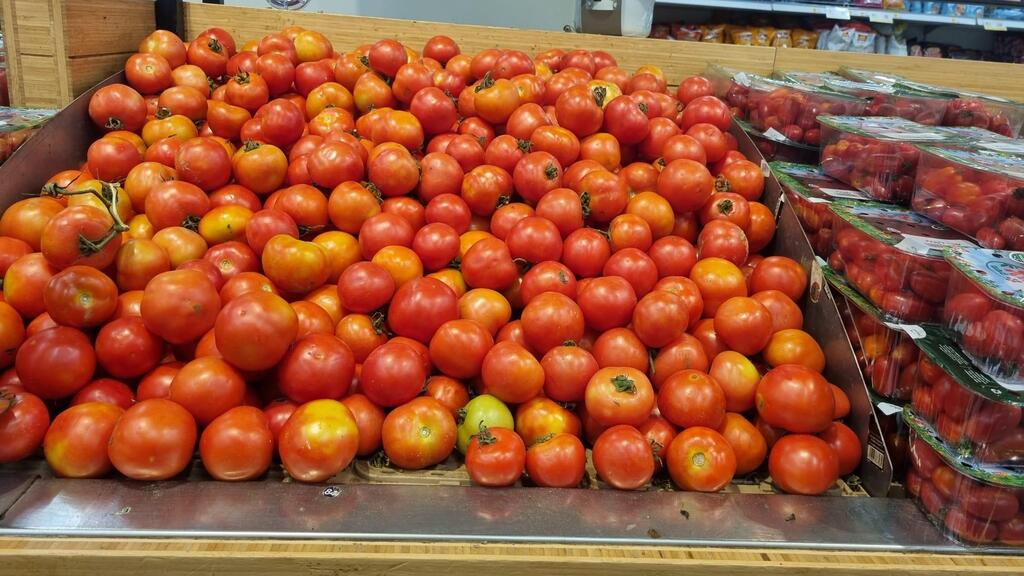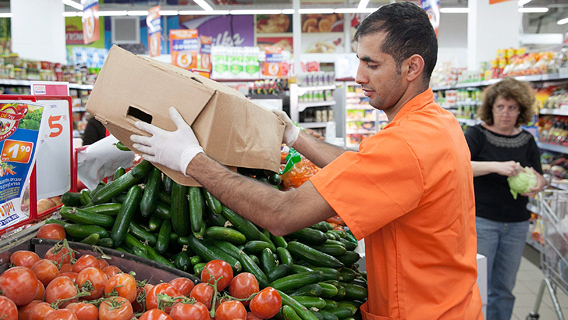Getting your Trinity Audio player ready...
Israel is facing a 40% shortage of tomatoes in the local market, after the halt of vegetable imports from Jordan and Turkey. Imports from Turkey were stopped several months ago after the country's president decided to boycott trade with Israel over the Gaza war, and the supply from Jordan was stopped at the end of last week due to fear of a cholera outbreak.
Ilan Shefa, one of the owners of the Bikurey Hasade company, the largest supplier of vegetables and fruits to the IDF, describes the situation as unprecedented.
"My brother and I have been in the field for 50 years, and since the establishment of the state there has not been a situation like this," said Shefa.
The shortage has led to a dramatic increase in prices, with the price of a kilogram of high quality tomatoes in the wholesale market reaching a 15 shekels, but this has not been fully passed on to consumers for the time being.
The situation presents a special challenge to the IDF, which is required to provide fresh food for its soldiers. At the start of the shortage, Bikurey Hasade submitted a special request to the procurement director of the Defense Ministry for approval to import tomatoes from the Netherland, despite a previous directive from the ministry, following a public uproar, to use only domestically produced tomatoes in the IDF.
The Dutch solution, if approved, will be particularly expensive. "We will have to import them by air, which makes them even more expensive, because bringing them by ship will take two weeks and tomatoes have a short shelf life," explained Shef, adding that the situation is further complicated by the cancellation of cargo flights by foreign airlines.
Meanwhile, the Israeli market is trying to deal with the shortage in different ways. Date tomatoes, which are usually intended for industry and are not grown in hothouses, are now being directed to the local market. However, as Shefa points out, "the problem with industrial date tomatoes is that their shelf life is short because they are harvested in a combine only when they are red and ripe."
The price at chain supermarkets is still relatively low
The big supermarket chains are also trying to find solutions. Rami Levy said that he was looking into the possibility of importing tomatoes from Cyprus, but warned that their price would be higher. Despite this, in supermarket chains the price of tomatoes has increased, but is still relatively low - between 6.9 shekels and 9.9 shekels per kilogram. This is in contrast to independent and corner markets, where prices for tomatoes reach up to 17.9 shekel per kilogram.
Sources in the industry claim that the supermarkets subsidize the price of tomatoes, meaning that they do not make a profit on them, in order to attract customers. The logic behind this is that, in a supermarket, the consumer buys a basket of products, so the discount on one product is made up on the other products that the customer purchases.
At the same time, the ministries of Agriculture and Health are closely monitoring the situation in Jordan after halting imports from there due to fear of cholera following abnormal samples found in the Yarmuk River. They hope to find a way to reopen imports from Jordan, or at least ensure that the vegetables are imported from areas that were not irrigated by river.
In the meantime, Shefa offers the public a temporary solution. "I tell the public that, for a limited period, it is possible to eat more of other vegetables." And, despite the difficult situation, there is also a bright spot: "Fortunately, the local growers in the Gaza border region have begun to recover from the war and are increasing their farming areas a little, otherwise the shortage would have been greater."



